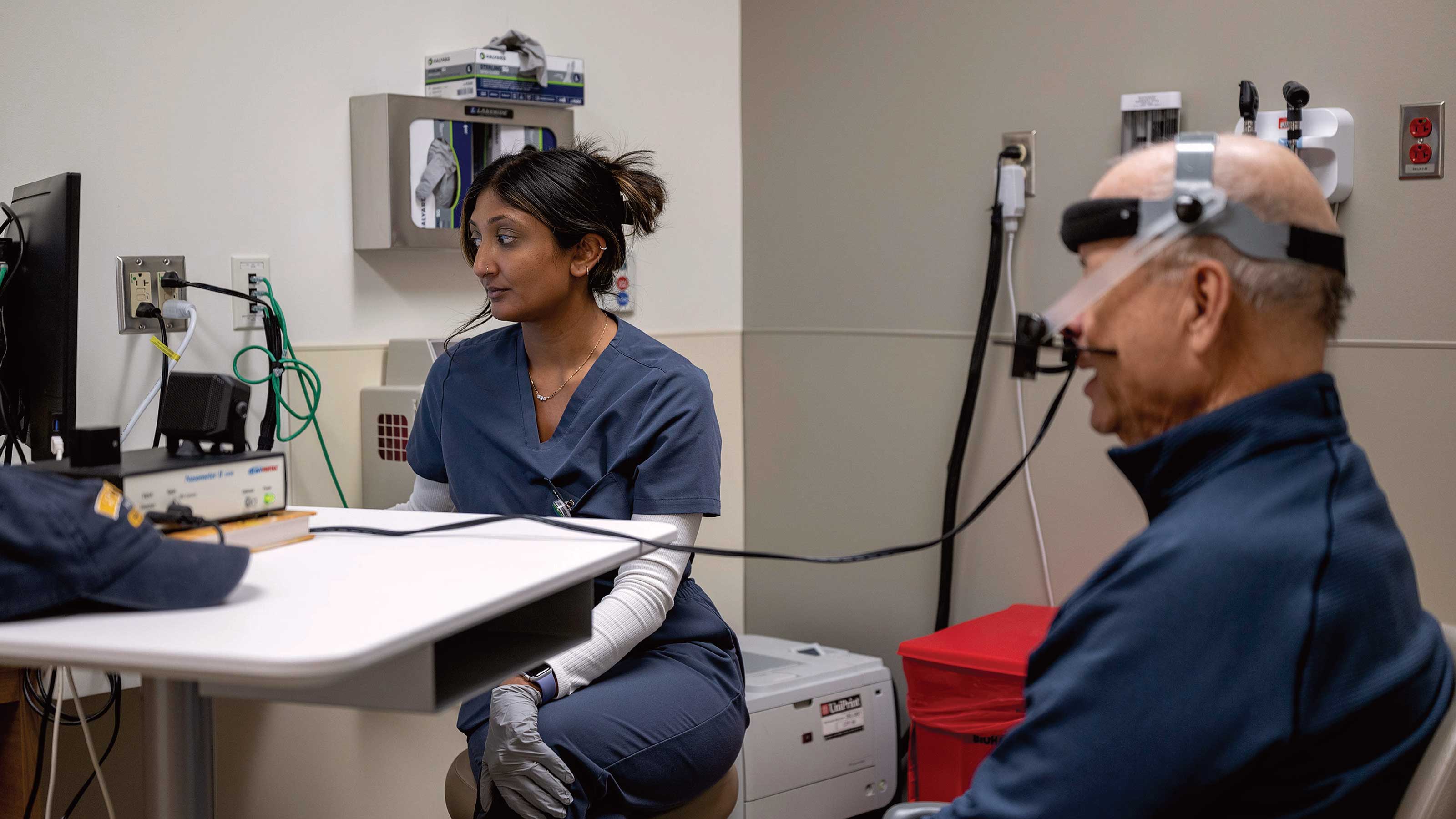
You misplace the car keys, struggle to remember the name of that movie you watched last week and resort to the calculator app to determine how much to tip the delivery driver.
This all used to be easy. What’s happening? Is it normal aging, or is it something to worry about?
We all get a bit forgetful as we age, but if that forgetfulness starts to interfere with everyday life, it’s a good idea to visit a health care provider. Here are some signs of normal aging and of dementia disorders, and what to do if you have concerns.
Signs of a normal aging brain
Thinking slows down
Our brains are at their fastest processing speed at age 20. We may not be making the best judgments because our frontal lobes aren’t fully mature until our early 30s, but our brains are quick.
As we age, that processing speed slows down. So, a 40-year-old brain is slower than 20-year-old brain, a 60-year-old brain is slower than a 40-year-old brain, and so on. This may make things we do, such as driving, slower as well, as we process everything around us. It’s to be expected and fairly universal.
Clues help
You also may be a bit more forgetful as you age, something called age-related memory impairment. But memories come back quickly if you’re given clues. For example, you may not remember what you had yesterday for lunch, but then someone reminds you that you went out to eat with a friend and all the memories of that event come rushing back.
If you can’t find your keys, for example, when you find them in an odd spot, it serves as a clue that acts as a trigger to help you remember how you misplaced them.
These are called “retrieval memories.” You may not be able to retrieve them easily, but they’re still stored properly. Getting to them just takes a little longer and sometimes requires a nudge.
You forget names
You may forget names of acquaintances, actors, book titles and the like.
You may get confused in unfamiliar places
If you’re driving in an unfamiliar place and get turned around, you may have difficulty figuring out how to get back on track. You may miss a turn on a new route in your GPS.
You may lose track of the date
If you’re retired or don’t have a calendar filled with plans like you used to, you may not always know the exact date or the day of the week.
Simple calculations take longer
You might not be able to make simple calculations in your head like you used to. For example, when calculating the amount of a tip at a restaurant, you may need to use pen and paper.
Signs of dementia disorders
People can develop dementia for many reasons. Generally, when people develop dementia at older ages, it’s due to neurodegenerative issues, such as Alzheimer’s disease.
New memories aren’t stored
Short-term memory loss is very common with Alzheimer’s disease. The brain doesn’t encode what’s happening, so new memories are not being stored. However, long-term memories continue to be stored throughout the brain, so you might remember a high school sweetheart or where you went to college but not something that happened yesterday.
Clues don’t help
Cluing for something that happened yesterday, for example, doesn’t help bring that memory to mind because it was never stored and cannot be retrieved. When you find the lost keys, you have no recollection of how they came to be there. Clues for long-term memories will continue to bring those back.
You forget names of everyday objects
Occasionally, we all might forget the name of a spatula, for example: “Hand me the whatchamacallit, that thing for flipping the pancakes.” If it becomes frequent, it could be a sign of dementia.
You may get confused in familiar places
You might get lost in a familiar area. For example, you’ve been to a store you visit often and have difficulty getting home.
You lose track of time
You may not know the month, the year or the season.
You’re unable to complete simple calculations
You’re unable to do simple math, even with pen and paper.
Changes in other executive functions
You may not be as good at thinking through things as you used to be, at organization, planning, decision-making or judgment. For example, you may become more susceptible to telephone scams or forget to get insurance information from someone who rear-ends you in a car crash. With these and other types of cognitive abilities, it is the change in the person’s baseline cognitive skills that is important. For example, if you were always good at organizing and skills begin to decline, it could be a sign of dementia.
Changes in personality
Our personalities usually do not change through life. If someone has been an extrovert or introvert, they tend to stay that way as they age. If they’ve had tendencies toward anger or kindness, if they’ve been filtered or unfiltered with thoughts and speech, these traits tend to stay consistent.
With dementia, you may experience significant changes to these personality traits.
The importance of family and friends in detecting early dementia
Extended family members who visit once or twice a year may be the first to notice if a loved one is repeating things, not cluing well or asking questions that they’ve already asked.
The people living with that person could be slower to pick up on the early signs of dementia. For example, a spouse may see subtle cognitive changes as their significant other not paying attention or not listening, when they’re actually becoming more forgetful.
If you’ve discussed weekend plans, for example, and a spouse doesn’t remember the details of what was discussed or the itinerary, then they likely weren’t paying close attention. However, if that person later asks, “What should we do this weekend?” as if you’ve never had a conversation, that’s reason for concern.
What to do if you notice cognitive changes
If you see any of these signs, you should visit your primary care physician and be screened for dementia. If possible, have a loved one go to the doctor’s visit with you, especially if it’s a loved one who has seen signs of dementia. Make sure to let the doctor knows the changes you’ve been noticing and how often they happen.
It’s important to always discuss these types of changes with a health care provider. They may be temporary or reversible. They may be signs of a dementia disorder. But, whatever the cause, it’s important to let your provider know.






